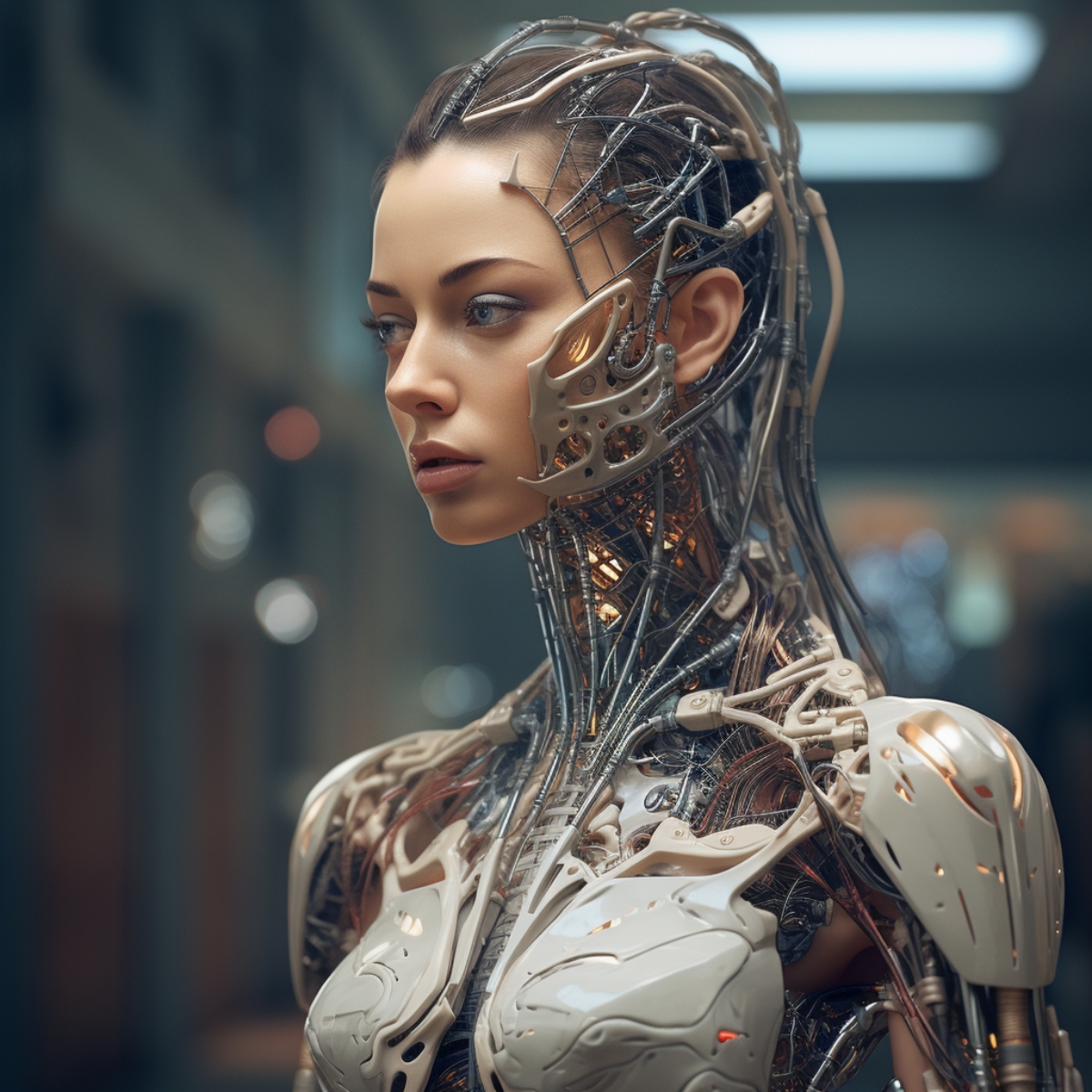Artificial Intelligence also commonly known as AI is a technology that is present in almost every aspect of our lives ranging from healthcare to finance, from education to entertainment. AI technologies are expounded to introduce more revolutionary changes as people continue to expand the innovative technology in the future years. This blog post outlines some of the most promising areas of what is considered to be the future of artificial intelligence and how they may be applied.
Healthcare: Concepts That Relate to, Personalized Medicine/Predictive Analytics
The application of AI to healthcare has great prospects for the future due to the opportunity it provides to improve efficiency and individualization of the approaches.
Personalized Medicine:
1. Thus, instead of prescribing the traditional treatment for a particular disease, AI can perform the analysis of genetic data, lifestyle, and medical history to contour an individual therapy map.
2. Speculative equations can determine better drugs and the correct doses for each patient thereby increasing the survivorship rates and decreasing on the side effects.
Predictive Analytics:
1. With the help of technologies, AI can forecast disease occurrence and patient admission that can in turn optimize the management of resources in the hospital.
2. It bridges the gap between an early diagnosis of diseases whereby medical imaging and patients data are analysed with the help of AI leading to chances of early interventions and hence improving the prognosis.
Finance: Superior protection and smart Buyer & Seller.
Financial industry is the set to be the chief benefactor of AI’s capacity in enhancing security and trading techniques.
Enhanced Security:
1. In using AI in fraud detection and prevention, the technology monitors and identifies suspicious transactions and replaces them in real-time with genuine ones that conform to the data input patterns.
2. Cognitive concluding models can prevent and anticipate cyber risks and threats to crucial financial records.
Intelligent Trading:
1.The uses of AI in trading are in trading algorithms where the algorithms have the ability to analyse huge data for market trends and execute the trades accurately because of their superior abilities.
2. The trading robots are able to analyse humongous data with the purpose of searching for patterns in the market and then use their capability to execute trades with efficiency because of the enhanced intelligence they possess.
3. It would mean that using AI to perform sentiment analysis, one would be able to evaluate the general disposition of the public coupled with the potential fluctuations of the market, which would help give an edge to the investors.
Education: Computerized Instruction, Intelligent Tutoring System.
Potential of AI in education is therefore to improve on the general learning environment and make it more efficient and tailored.
Adaptive Learning:
1. They also provide the possibility to create individual courses based on learning preferences and rhythms for every particular learner to increase the interest and learning outcomes.
2. Substantially formative assessment and feedback mean that an educator sees with which aspects a particular child needs help.
AI Tutors:
1. Also, virtual AI tutors can answer questions intended for the students and conduct clarification extramurally.
2. Chatbots run by AI can help the student body in administrative tasks like scheduling and setting reminders for assignments.
Transport: Autonomous Vehicles and Smart Traffic Management
It is not even a question that in transport, artificial intelligence will make this mode safer, more efficient, and sustainable for an even longer time.
Autonomous Vehicles:
1. Self-driving cars, trucks, and drones will use AI to seek their way around intricate surroundings, avoid accidents, and make logistics smoother.
2. By optimizing routes and increasing fuel efficiency, AI will help provide cleaner, more sustainable solutions for transportation.
Intelligent Traffic Management:
1. The AI systems can study the traffic patterns in real-time and synchronize the timings of the traffic lights so that bottlenecks are reduced, bringing down the congestion.
2. Predictive analytics can plan betterment of infrastructure and traffic management of a city, especially at peak hours and during emergencies.
Entertainment: Immersive Experiences and Content Creation
The Entertainment industry will further evolve with AI-driven innovations.
Immersive experiences:
1. AI can enhance Virtual Reality and Augmented Reality by developing more realistic and interactive environments.
2. On the other hand, AI can be used in personalizing entertainment content recommendations for users.
Content Generation:
1. Music, artwork, literature, etc. can be created using AI tools. This would extend creativity and cooperation.
2. Automatic video editing, automation of special effects to ease production burdens, and costs associated with the same.
Retail: AI-Driven Customer Service and Inventory Management
AI is going to make the retail sector more effective and customer-oriented.
AI-Powered Customer Service:
1. This is where chatbots and virtual assistants come in: they can respond to customer queries, even offer personalized shopping recommendations, around the clock.
2. Sentiment analysis will allow retailers to understand customer feedback and thus improve upon their products and services.
Inventory Management:
1. AI algorithms can project demand and reduce levels of inventory, reducing wastage while ensuring that products are ready to go when needed.
2. Automated systems can perform stock reordering and live supply chain logistics for tracking purposes.
Conclusion
Artificial intelligence is likely to gain a very fast pace in the next few of years and holds a huge potential to change everything across industries—healthcare, financial, educational, transportation, entertainment, and retail. It will bring much-needed transformational changes that raise efficiency, personalization, and innovation. While these technologies are being advanced and brought forth, so are their potentials in terms of facing some of the most gigantic challenges of the modern world, so as in creating great opportunities for growth and development.







